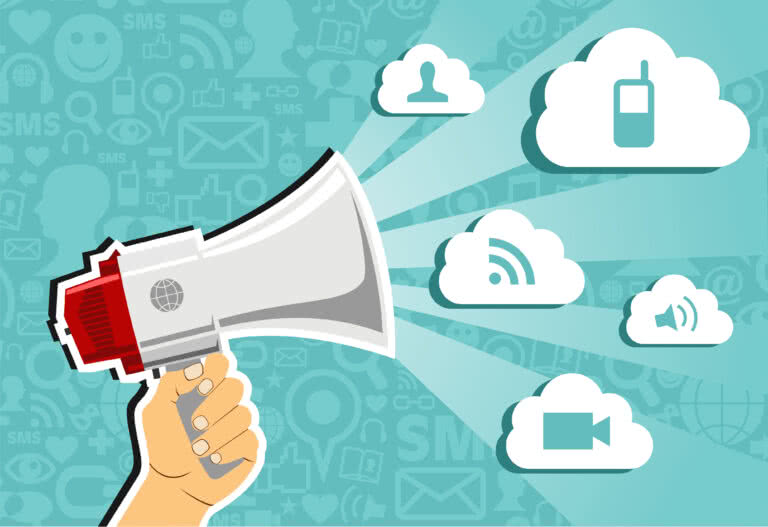This is a guest post by Dan McCarthy, Event Manager at JD Parties, an event management company based in the UK.
There is a reason procrastination is such an ugly habit: it leaves you in a mad scramble to get something done, and time is not your friend.
Nevertheless, there may be times when you are tasked with organising and promoting an event when it’s just weeks away. Sure, there will be some pressure, but it is definitely doable with the right strategies. Here are six last-minute event promotion ideas to help you out.
1. Get others involved
Promoting an event isn’t and shouldn’t be a one-man job so get others involved.
Whether it’s colleagues, freelancers, affiliates or sponsors – reach out and ask for help. Of course, some will help out of generosity and others simply because it’s their job.
However, to really ramp up the motivation, reward them for the results of their efforts. One effective way is to create some sort of tier-based reward system whenever X amount of tickets are sold:
Here’s an example of how a tier-based system works:
- 10 tickets sold: £30 Amazon gift card or to any store of their choice
- 15 tickets sold: any free product or service from your own company valued up to £50
- 30 tickets sold: £100 Visa money gift card
In addition to offering incentives, you can also include a referral programme and reward both the person that made the referral and the new person that was brought in to help promote your company.
In other words, if the new recruit sells 30 tickets, then both the recruit and the person that referred him get a £100 money gift card. A win-win situation for all.
2. Create a trigger event
Here is an example of how a trigger event works: if you were selling, say, flashlights, then you would create an event that requires the use of a flashlight, such as “Nighttime Outdoor Safety Day,” “Shining Light Into the Darkness Day,” or something along those lines.
How might this apply to promoting an event and selling tickets? You can add value to the ticket by creating a trigger event before the day of the original event the ticket is intended for.
You can, for example, create an online live teleseminar hosted by a guest speaker well-known in the industry. The teleseminar, though, will only be available to those who purchased a ticket. Ticket holders will be able to sign in using the ticket’s registration number. Schedule the teleseminar about a week before the event.
A trigger event such as this adds value to the ticket by giving the ticket holder more bang for the buck.
3. Reach out personally to high-prospect guests
We all know about the ‘Pareto Principle’, which is that, “80% of your business comes from 20% of your customers.” So why not focus the bulk of your efforts on that 20%? Reach out to these high prospect consumers personally and offer them exclusive incentives.
Address them by name when contacting them on social media, email, or text. Customise the message so that it’s personal for the particular recipient and is obviously not a generic greeting.
If the customer recently purchased a specific product from your company, for instance, then ask them what they think about said product. Use this as the lead-in or as the final “PS” statement at the end.
For high-prospect customers, you can also consider sending them a paper invitation via traditional mail. The letter can include a handwritten message and even a complimentary discount code or coupon.
This is a show of goodwill on your end and a way of saying thank you even if they decide not to come to your event.
4. Incorporate a 2-for-1 purchase offer
If you’re working on a limited timeframe, you may simply be unable to sell all of your tickets even with your best efforts. If you foresee having unsold tickets, then you might as well put them to good use one way or another.
Sell the tickets in bundles of two for the price of one. Promote this as a “bring your friend along” type of deal.
Conversely, you can also give the tickets away for free in exchange for some type of action, such as “liking” or sharing a certain number of your social media content.
Every ticket should be used at the end even if you can’t sell them. This ensures you acquire the desired turnout. A bigger turnout also means more opportunities for creating guest engagement during the event.
5. Embrace the power of social media
Using social media is so obvious in this day-and-age that it’s almost insulting to the intelligence to even have to mention it.
However, it does need to be brought up because many businesses, especially local and mom-and-pop ones, still don’t use social networks, and those that do can often under-utilise it. Many businesses send a few posts on Facebook or Twitter and think that’s enough.
Okay, so you use Facebook and Twitter. That’s a good start, but what about LinkedIn, Pinterest, or Google Plus? Have you explored any niche-specific social networks? What about YouTube? That’s a social network, too, you know.
Have you thought about creating an introductory video and including links in the description? These are all goldmines waiting to be tapped into. Create an event page for a major social network like Facebook, and use all the others to promote and link to the page.
Each social network has their respective strengths. LinkedIn is useful for reaching out to professional contacts, while a site like Pinterest has been proven to be popular for a female demographic in the 25-34 age group.
How else might you use your social network channels? Consider the following:
- Swap out your profile pic with an image of the event invitation. Have everyone involved in the project do the same.
- Create an event-specific hashtag and use it in every post from here on out.
- Add pictures of last year’s event and use them to create a collage with a catchy caption, such as “see you at this year’s event” or something like that.
- Add social share buttons for all of your blog posts and other content.
6. Promote on discussion forums
Discussion forums have practically been forgotten despite being around long before social media. They are still frequented, though, by people looking to make small talk or ask a question regarding a niche specific topic.
Join a discussion forum or two for your industry and start a thread where you can let the members know about your upcoming event – although you need to be cautious in your approach to forums.
Here’s the key: don’t become a member and begin promoting right away. Yes, you are on a short timeframe, but take the time to establish yourself first.
Regular and frequent forum contributors know who most of the members are; they know who tends to ask questions, who normally provides the answers, who the trolls are, and so on.
When you join the forum, offer your two cents in discussions and offer industry-specific responses when you have the answers.
Once people know who you are and you have “earned your place,” so to speak, then go ahead and start a thread promoting your event. Otherwise, it’s obvious you’re only there for your own interests.
It’s never too late
The pressure is on when you have a narrow timeframe for promoting your event.
However, you don’t have to work harder or necessarily even have to put in more time. You do, however, have to work smarter and utilise sound strategies if you hope of making the most of the allotted time.
Dan McCarthy is an Event Manager at JD Parties, an event management company based in the UK. Dan has 5 years of event project management under his belt. He has worked on many successful events, and currently he shares his knowledge by writing on the company blog. Follow him on Twitter @DanCarthy2.





